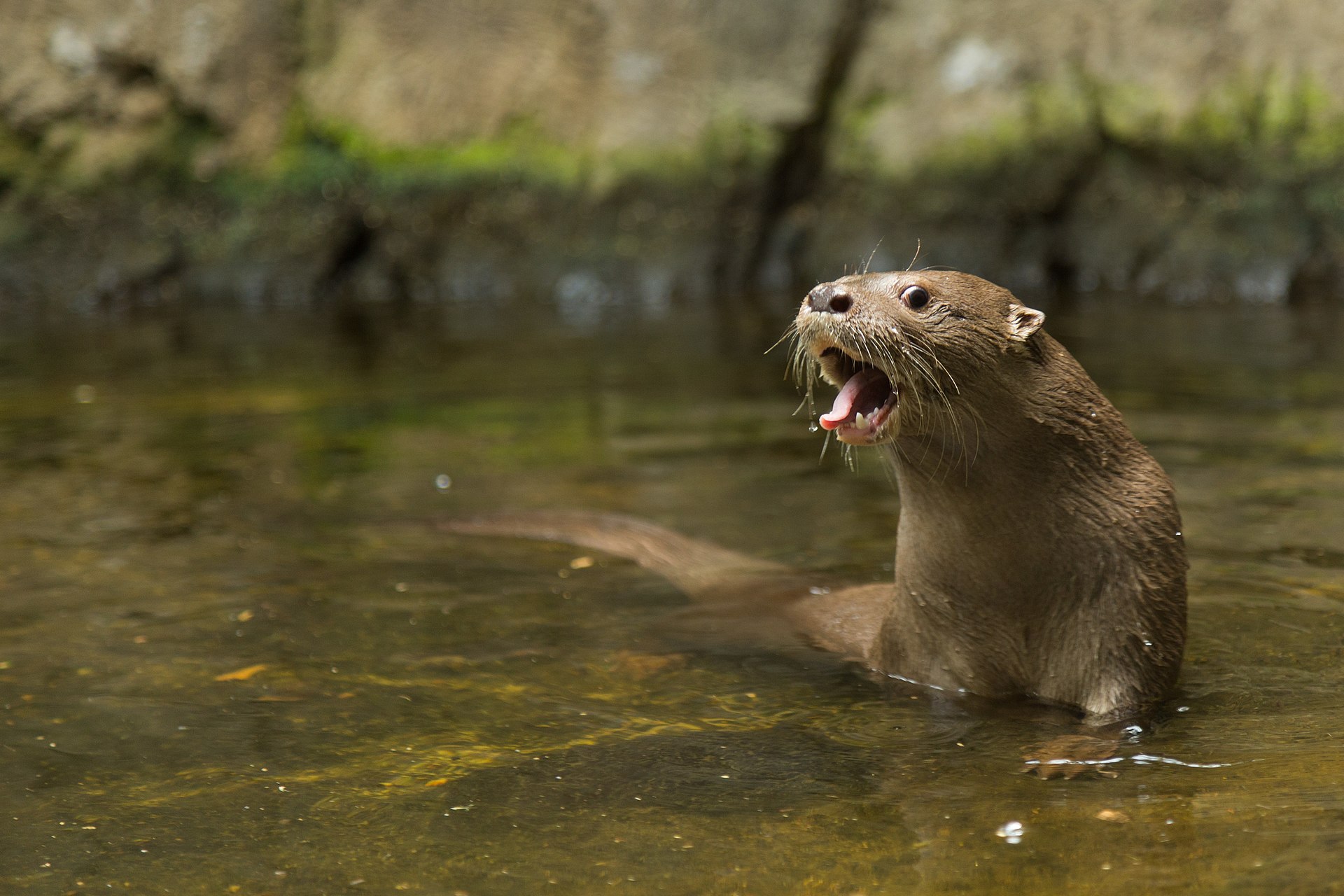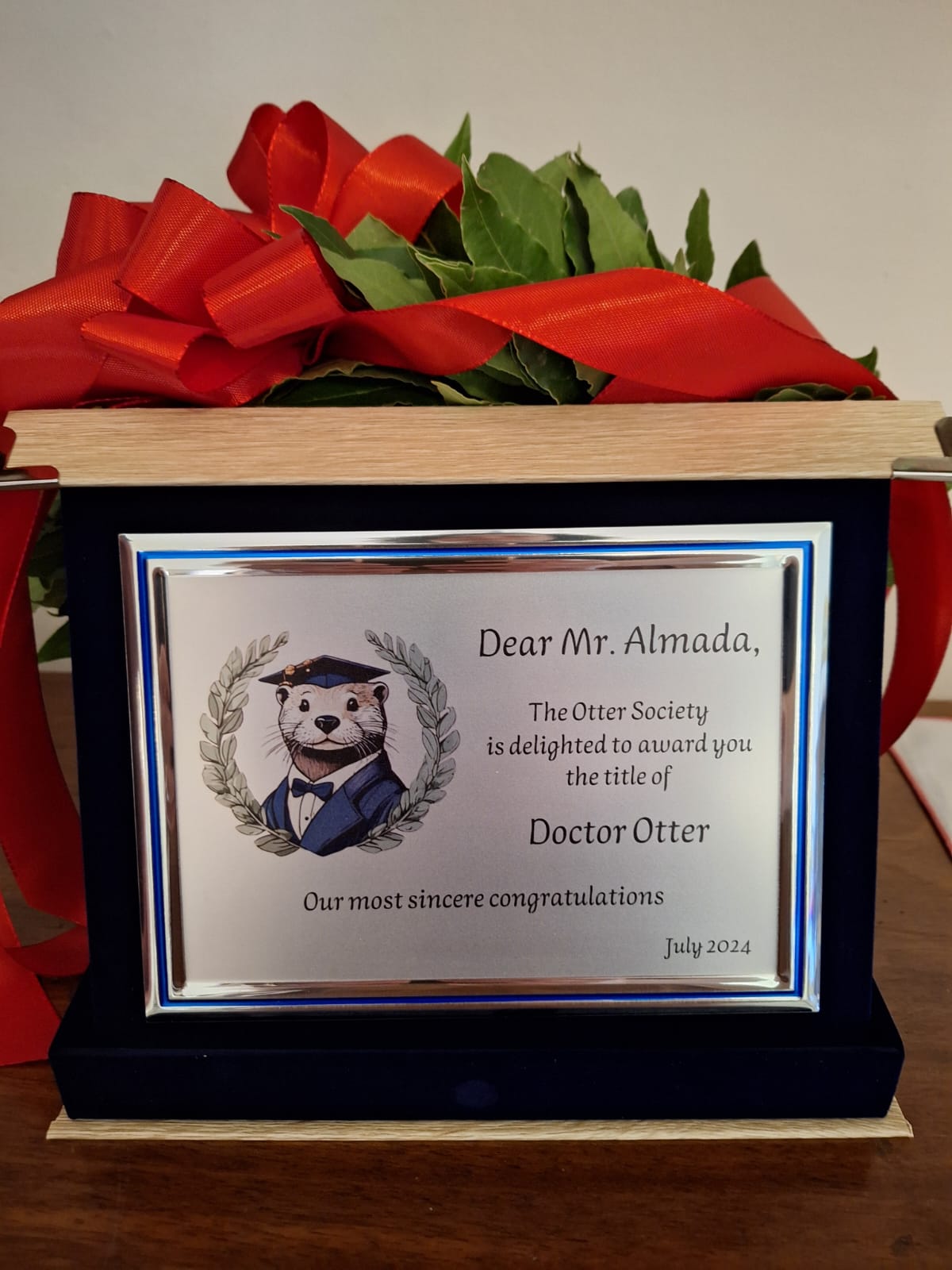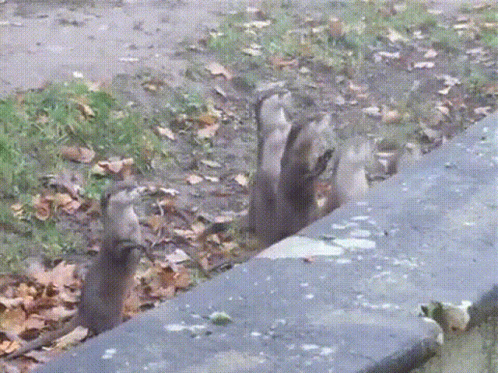Double anniversary
A very long 100th issue of AI, Law, and Otter Things
Hello, dear reader, and welcome to another issue of AI, Law, and Otter Things! Today’s newsletter is particularly festive for me. Not only this is the 100th edition of this newsletter, but I am publishing it comes four years (and a day) after I emailed the first issue to a handful of subscribers. Since then, quite a bit has changed: I’ve finished my PhD, moved to Luxembourg, broadened my research focus beyond AI towards regulation more generally, and got back into Warhammer 40k after a decade and a half. Oh, and there were some minor developments in world politics and EU law, too. Today’s issue, accordingly, will spend a lot of time talking about the newsletter itself.

After that, we have the usual: reading recommendations, a few opportunities, and then the otter pictures. Hope you enjoy!
A self-indulgent recap
This newsletter was born out of an unusual surge of nostalgia. As an Extremely Online Millenial, I was basically raised by email lists, and I used to have a collective blog with some friends where I’d publish some pedantic long-form writing.1 But, after I started college, my priorities changed a bit and the social possibilities offered by early-days Twitter were enough to scratch my communicative itch. Two things changed that: the enshittification of Twitter2 and my moving to another country, which made me want another venue to practise my writing beyond the drafting process. Hence, I decided to create a personal newsletter on Revue at some point in mid-2021, publishing my first essay on 15 July of that year.
In the following paragraphs, I will talk about the past, present, and future of this newsletter. First, I will highlight a few old posts that might be of interest for newer readers,3 discuss my experience after writing a hundred posts, and briefly outline what I see as the future of this newsletter.
A few favourite posts
I like to think that I’ve matured as a scholar during the life time of this newsletter, both in terms of interests and competences. This means that I don’t always stand for (or care for) things that were central for me a few years ago. Still, there are quite a few older posts that I see as still relevant, potentially underappreciated, or that would warrant rework in the future.
Unfortunately, it seems that some of the otters present in earlier posts are no longer available, especially those which I had shared from the website formerly known as Twitter. Nonetheless, allow me to share a few personal recommendations:







What I learned from AI, Law, and Otter Things
Four years and a platform change later,4 I must say that I’m pretty happy with what came out of that experiment. It has certainly succeeded as a venue for writing practice: I feel much more comfortable in drafting those essays nowadays than I did four years ago,5 and I like to think that more recent essays convey a stronger voice. Here, I can try to articulate my perspectives and my (awful) sense of humour to an extent I cannot do in my professional writing — or at least not yet! It has also helped me develop a brutal awareness of my writing tics, such as the overuse of certain adverbs and my love of discursive footnotes. Any scholar who is not a native speaker of English might benefit from having a sandbox like that.6
AI, Law, and Otter Things has also allowed me to experiment with ideas, and not just with their expression. Some of my posts have been earlier versions of ideas that I later refined into actual research, as I have done in my AI Act article with Nicolas Petit and (more recently and still in progress) in my discussion of regulatory monocultures. Others were taken up by people who did better with them than I could hope to, and I was positively surprised to see that my discussion of metaphors and analogies in tech law has been invoked in a technical report and a peer-reviewed article. And, of course, many of the ideas I present here led nowhere, but it is much better to have an idea flop after some initial development than after a few rounds of revision.
Those returns were in line with my ambitions in setting up this newsletter. What surprised me, instead, was that it somehow found an audience. Between half-baked ideas on law and technology, some ranting about academic life, semi-aquatic mustelids, and my niche personal interests, I expected half a dozen subscribers, if much. Yet, thanks to my relentless spamming on social media and your word of mouth, this newsletter now reaches almost 600 people by email. This is not exactly a quit-your-day-job level of celebrity, but allows for something that I love: actually getting feedback and discussing with people. I sometimes get thought-provoking replies to newsletter issues, and it allowed me to meet many people through online and offline conversations, including some of my academic heroes as well as people with whom I would eventually write something. All in all, this newsletter has been well worth the time I spent on it.7
Where do we go from here?
One of the things of writing a hundred issues of a personal newsletter is that it can be difficult to find new topics. Of course, I do revisit issues from time to time, but only if I forgot about the earlier post feel I have something new to add, which is not always the case. There is always the option of pilfering something from my research notes, but sometimes my projects are at too early a stage to share, or I don’t want to talk about (let’s say) regulation by design or technology neutrality again. This is why I do not always stick to a regular schedule here. Still, writing AI, Law, and Otter Things is always fun when I actually settle on something to write about.
Generally speaking, I plan to keep going with the newsletter as it has been operating in the last year or so. That is, I will try to write once every week or two, alternating between posts on substantive content and “meta” reflections about academic writing and life as an early-career scholar. As my research interests have drifted somewhat, you are likely to see more content on EU law and on regulatory theory here, as well as stuff on cyber policy more generally. My work focuses less and less on the specifics of AI regulation, but, given how incontornable this technology is nowadays, it is unlikely I will stop writing on AI altogether.
What will not change is the access to this newsletter. It will remain freely accessible for all. Despite some kind pledges, I feel like accepting money for my writing here would erode some of the value I take from this virtual space (particularly the flexibility and the exploratory character), and it would close the doors to some of the interactions that come out of it. If you ever feel like you’ve gotten something out of this newsletter, please don’t hesitate to let me know, invite me to something nice, or pay me a drink. But, mainly, let’s keep the conversation going.
Recommendations
Ana Paula Brandão and Isabel Camisão, ‘Playing the Market Card: The Commission’s Strategy to Shape EU Cybersecurity Policy’ (2022) 60 JCMS: Journal of Common Market Studies 1335.
Edward W Constant, ‘Why Evolution Is a Theory about Stability: Constraint, Causation, and Ecology in Technological Change’ (2002) 31 Research Policy 1241.
Jennifer Dodge and Tamara Metze, ‘Approaches to Policy Framing: Deepening a Conversation across Perspectives’ (2024) 57 Policy Sciences 221.
Alessandra Porcari, ‘Il “principio” di neutralità tecnologica nella Transizione Verde. L’Unione Europea e la regolazione della filiera dell’idrogeno’ (Dottorato di Ricerca in Studi Giuridici Comparati ed Europei, Università di Trento 2025).
Frank K Wilhelm and others, ‘Status of Quantum Computer Development’ (Bundesamt für Sicherheit in der Informationstechnik 2024).
Monika Zalnieriute, ‘A Struggle for Competence: National Security, Surveillance and the Scope of EU Law at the Court of Justice of European Union’ (2022) 85 The Modern Law Review 198.
Opportunities
Radboud University Nijmegen is looking for two postdocs in a project on Securing Public Values in an Age of Digitalisation. Applications are due by 10 August.
Durham University is looking for a Career Development Fellow in Public Law. Applications are due by 11 August.
NOVA Law School in Lisbon is looking for an Assistant Professor in Public Law (Political Legal Sciences, International Legal Sciences), in the thematic area of Human Rights. Applications are due by 22 August.
LUISS University in Rome has an open call for expressions of interest in Assistant, Associate and Full Professorships, with a deadline of 15 September. Readers of this newsletter might be particularly interested in the calls for EU law, criminal law, civil procedure law, or public policies.
And now, festive otters!


Thanks for your attention! Hope you found something interesting above, and please consider subscribing if you haven’t done so already:
Do not hesitate to hit “reply” to this email or contact me elsewhere to discuss some topic I raise in the newsletter. Likewise, let me know if there is a job opening, event, or publication that might be of interest to me or to the readers of this newsletter. Hope to see you next time!
And poetry that would put the Vogons to shame. ↩
I am not a big fan of the “enshittification” frame as a grand theory of the internet, but it offers a convenient shorthand for what has gone wrong with that particular platform. ↩
More than 40% of you subscribed in the last year or so, and I used to write more often in the past. ↩
With another possibly to come, once I have some time. ↩
Perhaps too comfortable, as I used to proofread the newsletter in the past. ↩
This comes with the usual internet disclaimer: this statement is not meant to be the content of a requirement that has the reason-giving force of morality. So, if you feel you can’t or don’t want to pursue it, move along. ↩
Around 2-3 hours per issue, a bit less now that I’ve completely given up on proofreading. ↩













